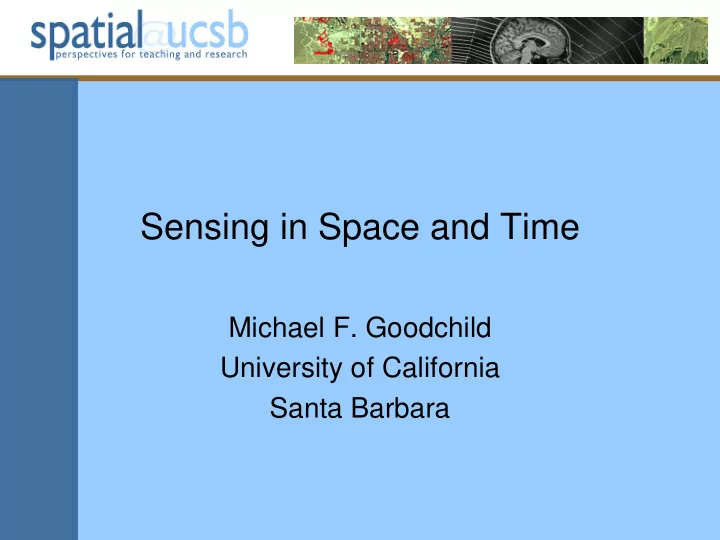

Sensing in Space and Time Michael F. Goodchild University of California Santa Barbara
GPS/GNSS • Trivial to add location and time to a point record – not so trivial at all to add location to a place
What is sensing for ? • The exposome – individual exposures to potentially harmful pollutants • PM2.5 – particulate matter that passes through a 2.5- micron filter – high-quality sensors are expensive – PM2.5 concentration varies rapidly in space and time • in 4D
https://www.ontario.ca/page/air-quality-ontario-2014-report
https://data.london.gov.uk/dataset/pm2-5-map-and-exposure-data
How to densify? • Large number of cheap/inaccurate sensors – carried by humans, on vehicles • Integration of hard/rare and soft/dense data – co-Kriging • Modeling using covariates – traffic, TRI, GDP, etc. • Remote sensing
Xu Zhong, Matt Duckham, Derek Chong, and Kevin Tolhurst, Real-time estimation of wildfire perimeters from curated crowdsourcing. Scientific Reports 6 , Article number: 24206 (2016) doi:10.1038/srep24206
Xu Zhong, Matt Duckham, Derek Chong, and Kevin Tolhurst, Real-time estimation of wildfire perimeters from curated crowdsourcing. Scientific Reports 6 , Article number: 24206 (2016) doi:10.1038/srep24206
Uncertainty • Measurement error in the sensor data • Additional uncertainty introduced by interpolation, densification – how to propagate through the various stages • How to communicate uncertainty – in the context of a use case
Research questions • How to densify in space and time • Where to put the next sensor? – to give the greatest increment to knowledge – to solve the most immediate practical problems – subject to numerous constraints • How to integrate dense/soft data with rare/hard data • How to estimate and visualize uncertainty in interpolated estimates
Recommend
More recommend